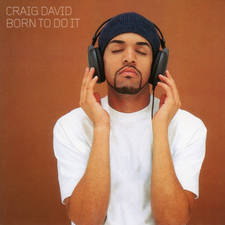Health Workers Strike In Pay Row
13 October 2014, 19:10
Hundreds of thousands of health workers have staged their first strike over pay in more than 30 years.
Midwives, nurses, paramedics, ambulance staff and hospital porters and cleaners mounted picket lines across England from 7am for four hours on Monday 13 October 2014. They will take other forms of industrial action for the rest of the week.
Many workers, including midwives, went on strike for the first time in their lives, saying they never expected to have to take industrial action.
A noisy protest was held outside St Thomas' hospital opposite Parliament in Westminster, with most passing cars, buses and lorries tooting in support.
Midwives shouted: "Don't push midwives - push fair pay."
Annie Black, who has been a midwife for 12 years, said: "We haven't had a pay rise for years yet our workload keeps on increasing. It's time the Government took us seriously. It's weird being on strike, but we feel that enough is enough."
The strike was in protest at the Government's decision not to accept a recommended 1% pay rise for all NHS staff.
Mark Boothroyd, a staff nurse at St Thomas', said: "We have had a pay freeze for four years, so not accepting a recommended 1% from the pay review body was the last straw.
"There is chronic under staffing and increasing workloads, while the NHS is being privatised. At the same time, MPs are being paid a double digit pay rise because David Cameron says he cannot interfere with what is being recommended. It's just not fair."
Christina McAnea, national officer of Unison, said: "This is the first time in 32 years that NHS workers take industrial action over pay, and for many, it will be the first time. Up and down the country, hundreds of thousands of workers are out fighting for fair pay and for the NHS."
Contingency plans were put into place to deal with the strike, with union members responding to emergencies.
But a row broke out after it emerged that military personnel and the police were being deployed by the London Ambulance Service. Unions said they had been kept in the dark about the move, which they described as "provocative".
London Ambulance's director of operations, Jason Killens, said the service was expecting to be under "significant pressure" during the strike, adding: "While we recognise the right of our staff to take action, we must also do all we can to continue to provide a safe service to Londoners.
"We have plans in place to ensure we reach the most seriously ill and injured patients as quickly as possible and these include additional support from hospital doctors and nurses, private ambulance crews, the police and the military."
Health Secretary Jeremy Hunt said: "We absolutely will talk to the unions, we've been prepared to talk to them throughout this. We will talk to them if they're prepared to look to reform the system of increments, which is unclear and unfair.
"I recognise frontline staff do a magnificent job in the NHS. We have had more than 650 NHS volunteers who are willing to put themselves in harm's way to help tackle the Ebola crisis in West Africa.
"We have magnificent people.
"We're offering them all a one per cent rise. The majority of NHS staff get an automatic 3% increment but we can't afford to give a one per cent rise to people already getting that.
"We're coming through a very difficult period with the tragedy of Mid-Staffordshire. We now have got 5,000 more nurses in just a year. We're recruiting nurses like crazy at the moment and to put that in reverse would not be the right move at the moment.
"The most important thing here is doing the right thing for patients. It would be irresponsible for any health secretary to accept a pay package that means the NHS has to lay off nurses."
Mr Hunt said that hospitals would be forced to lay off staff if the recommended pay award was met in full.
"Nearly 60% of NHS staff get an automatic pay rise through their increments of an average of 3%. We can't afford to offer a 1% on top of the 3%," he told the BBC Radio 4 Today programme.
"We have had very clear analysis that if we did that, hospital chief executives would lay off around 4,000 nurses this year and around 10,000 nurses next year.
"The NHS has just come through a terrible tragedy with Mid Staffs when we discovered the most appalling care happening there and indeed some other hospitals as well.
"We have turned the corner on that by recruiting in hospital wards around 5,000 extra nurses in the last year alone. We don't want to turn the clock back on that."

